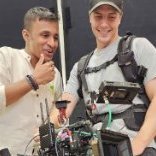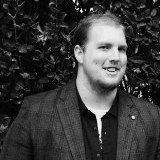Search the Community
Showing results for tags 'varicam lt'.
-
1- Canon 17-120mm Cine-Servo Lens PL & EF Mts. $17,500 2- Sigma 18-35mm T2 HS Zoom Lens Sony E $3,200 Each 2- Sigma 50-100mm T2 HS Cine Lens Sony E $3,000 Each 1- Sigma 50mm FF HS Cine Prime T1.5 Sony E $2,700 2- Tokina Cinema Vista 16-28mm T3 Wide Angle Zoom Lens PL $ 3,500 Each 1- Fujinon ZK 14-35mm T2.9 Cabrio Lens PL. $20,000 1- Fujinon XK 20-120mm T3.5 Cabrio Lens PL $10,500 1- Fujinon ZK 85-300mm T2.9 Cabrio Lens PL $22,000 3- Canon CN-E 35mm T1.5 Cinema Prime Lens EF Mt. $2,800
-
Good Morning, Afternoon & or Evening to who is reading this. I'm an owner operator out of Sydney, Australia. Recently I've had two major issues on set with an Ursa G2 which has lead me to get rid off it as I can't afford to have major malfunctions on set with paying clients who expect gear that works. Currently I'm renting for jobs, which is great for some jobs, but not financially beneficial for a lot of my work. Now, I find myself in the market for a reliable system that can deliver high-end files etc etc etc. I'm considering the usual, Arri, Red etc (although I do rent these for jobs that require it). However, I've always been quite intrigued by the Panasonic Varicam LT, and I will be renting one soon to get to know the colour science & camera in general a little better. Finally to my question - There is clearly a huge lack of material based around the Varicam LT, which is why I turn to ya'll. Is there anyone here that can shed some light on the system and how it has worked for them in the field? There are sub 500 hour kits going for under $10K which seems like an absolute bargain when you see the camera on paper. Any information regarding the camera pro or con will be ultra helpful. Thank you in advance, Darmon Moore
-
Hey all. Happy holidays and happy new year. 2020 is now hindsight (thank god). First off, I have a lot of reverence for what you guys do. Many of you on this forum I'm a huge fan of, so it's an honor even in a small way to be writing this. So thanks for listening. Overwhelmed by choice overload. I tend to be a little too good at matching pros with cons and vice versa, so this amount of indecision (and the self-awareness about the indecision) has been difficult. Hence the need to reach out. I'll cut to the chase since I don't want to waste anybody's time. I'm looking to own a camera, thats what this is about. I've got enough $ to own a Komodo production kit with tax. I'll outline choices at the end. The purpose is for me to just feel empowered to get out and make films and work as a director / operator full time versus a owner / op who just rents his camera out to DP's other peoples stuff primarily. I do that for money occasionally the same way I color or edit or crew for people occasionally but my full step forward is towards going from one project to the next on my portfolio. Until then, here's a lot of ridiculous background and way too much information. I'm a filmmaker who prefers self-operating, but mainly for the intimacy and connection with the actors and for how it helps me concentrate, not because I consider myself a proper image-maker at heart, like I'm sure some of you do. My passion is mainly storytelling, not gear, though I'm well capable of digging into deep rabbit holes of technical details if it means getting exactly what I want when I want it. Background: age 25, Burbank-native, editor primarily (that's certainly where most of my superficial skills lie) I'm experienced in that I've made shorts since I was 10 years old. My first feature did get distributed by Gravitas and won a lot of awards - so I'm not totally untalented. But it was exhausting getting there. And in general, I hate the word "content" and have no intention of being a "content creator" at all, ever. Just want to keep telling stories in the way that feels truest to my heart, and make the strongest step forward. Life doesn't make a lot of sense when I'm not making films. And I need to make films right now. What's been hard is not having anything to express myself with. Like many of you, I'm relegated to primarily being at home, needing to channel energy. I've got stuff to shoot, I'm always writing and working with friends on writing films. I told myself I will just rent, that the entirety of hollywood infrastructure is built upon the idea that you don't own your own gear - that its better to just own lenses, which I still do. Logically, I still believe that. Emotionally though, whats been hard is not having that tool to express myself with. I know that theres an argument to be made for todays infrastructure being different from shooting 10 years ago, that being an owner operator now especially as a young person is fairly valuable. I also know its the story, performances, composition, movement, and lighting (in that order) that makes it, not the gear. Furthermore, Steve Yedlin's right. Camera's today are really just data collection tools. Even film cameras are glorified boxes the film goes through. I like being a colorist and relish the freedom it gives me. But its almost a separate part of my brain. The part of me on set thats connected to the actors and the story, that's the part I wanna grow. But still for me, film nearly always looks better. I have been fooled a few times, but only when they shot on anamorphic lenses. Linus Sandgren isn't wrong about the distortion of those being almost necessary in a twisted sort of way. His work, plus Maniac, 10 Cloverfield Lane, and a few others I find truly exceptional. If I'm to collect data, then the data I actually care about (which makes film superior) is the motion cadence of a global shutter, the ability to sandblast highlights and still have it look cool, and the ability to oversaturate or shoot in harshly oversaturated environments. That's the data set I'm looking for in a camera to own. Recently wrapped up a short on the Red Komodo which I made for an AFI application. Super happy with the image and versatility of R3D, which is inspiring in how it almost dares you to challenge it and push it to its limits. I love that you can beat the tar out of it in post and it never bands or splotches or falls apart. We even did a filmout from the R3D files to a 16mm sized portion of the negative at Fotokem, just to see how close Komodo could get to film, since its the first camera with films dynamic range and a global shutter. Astonished by the results - so much so I genuinely think I could film out everything I've ever done and get the best of both worlds (Most of my heroes are people who utilize the best of both, or create an invisible third option by kicking down the door) Still, something about shooting digital with that camera did not feel right to me. Could have been the stress of mounting COVID productions in general being a huge hassle, but also (while I appreciate lightweight cameras) I've never been a fan of feeling like I'm holding a DSLR. (Though BOY is it nice when you wanna shoot illegally. Had the Canon C70 existed before, my feature would have been completed considerably faster.) Tested the Varicam LT for the short first because that's been my favorite look on digital (perfect mixture of RED's cutting edge and Arri's painterly qualities) but weirdly, wasn't as good as Komodo, was heavy, and was bothered by the rolling shutter on that as well. Which was disappointing, because shooting 3200 iso in camera and NDing for exposure compensation is the closest I've seen to film grain yet. Plus Varicam colors are more Eterna than Vision3, and I'm definitely more of an Eterna guy. I've used lots of cameras, but owned only 2. HVX200 was the camera I learned on and in some ways it spoiled me. Got used to global shutter and undercranking & overcranking and timelapse photography and thick viewfinders and shooting to tape and it's been hard finding cameras that feel that level of satisfying. Owned a c100, but was never happy with it. Most of shooting my feature was about pushing that thing to its absolute limit in every conceivable way (to the point it stopped turning on altogether). After that, I owned the S1H for a bit, mainly because of my history with the HVX200 & how much I liked the Varicam. Sold it. Got WAY too into the whole idea of kitting it out to oblivion, trying to turn it into something its not - and became unhappy. Image was lovely but HATED the rolling shutter. Any readout 15ms or greater seems similar to the Haas effect in acoustics, where you don't truly perceive it until its in the 15ms to 30ms range. Though our eyes are way sharper (hehe) than our ears, so its probably more like 7ms or greater (at least for me). I've used lots of cameras, owned only a few. Mainly, the c100 Mark I, and the S1H for about 6 months. Unhappy with both. As badly as I want to like the EVA1, the image is beautiful, its the only camera I've ever used which actually enrages me ergonomically. That horrible plastic body and screen and clickless dial which makes menus impossible to navigate. Blackmagic is a fascinating player in the scene, and has the best menu system ever but I hate how every college kid or person my age uses them. I know you can color them to look however you want but I hate having to give myself so much to do, and I hate their lack of quality control. My choices so far have boiled down to these 3. I'm discounting options which I believe will be useless in 10 years. Komodo seems of all the new cameras to be the one best primed for the test of time, and the Alexas proven her stripes, and film, well, film is film. I want this to be (if at all possible) the last time I purchase a camera, at least for a decade. I also hate how every manufacturer uses the word FUTUREPROOF. 1. Red Komodo. Have the experience with it, love the image, and of course - the global shutter innovation makes it (to me) the most exciting digital camera in the world at any price level. I know people do get hired because of the Red bias, too, which is nice. Unless I get super creative though, it's gonna be forever till they actually get in stock. But: I can afford to get a decent run and gun kit, and after the initial charges, I'd never have to pay again to create, and I'd have the closest approximation to film motion cadence on a digital sensor. With that ND wheel from Kippertie it'll be great. Genuinely, I do feel its the ultimate tool for someone my age in the year 2020, if properly utilized (and yes, utilized in a way that's different from REDs design purpose). To me, it seems like Reds Mini. The Alexa Mini was a drone camera that became an A cam, too. I don't like having to lean down and look at that tiny screen, but part of me also feels this may help my compositions, and force concentration on framing better. I know I do function better with some limitations. All in all, I love the Komodo in spirit, mainly because it appeals to the more "fly by the seat of my pants" part of me, the one that believes in taking risks and stuff. The young punk, lol. 2. Alexa Classic. I don't need the resolution (2K's my favorite) and despite me hating the vanilla-ness of that choice - there is part of me that always thought, wouldn't it be cool to own that camera and really do some more extreme photography? Overexpose, underexpose, get grainy and nasty - i do have a little devil in there somewhere that feels he would enjoy that. Plus, its the standard. Menus are easy. Love the EVF. Much closer on paper to my experience with the HVX200 than the Red Komodo. Theres an appeal in that to me being that its the closest thing in digital to cutting out the bullshit. I've heard DP's articulate how that camera more than any other just allows them to focus on their creativity and their storytelling, and not worry about anything else. I do prefer the Varicam look over the Alexa, and the built in ND's. But the rolling shutter bugs me. And an LT is pretty hard to come by used. So a classic EV seems the most compelling option in the realm of "can't go wrong". But theres self-conciousness about wanting something so "safe" 3. Shoot film. My favorite look, the look I grew up on, is Super 16mm. I dream in 16mm, honestly. Specifically, the format from the 90s forward. Nearly all of my style comes in some way from Super 16mm or super grimy 35mm. Especially in 2020 with the advances in scanning I find the look to immediately be more like the 35mm of the 1970s. It's also the only format I've never seen any successful digital emulation of. Closest was operation avalanche. And that's because they actually filmed out, so it WAS 16mm. I know there's Arri SR's for decent prices, and CP16s, and Eclairs, and despite that essentially being a form of sinking myself into an endless money pit, buying into a dead technology, etc - I've also found more community talking to film people than any other group, and theres a general focus on creativity that seems harder to find in digital (though I know it exists). Only shot on a Bolex and a super 8 camera before so I'd be a huge noob. But I loved doing it. And unquestionably I know it would force me to grow the quickest. I'm attracted to the romance of it, and the idea of proving myself on it doesn't seem scary. What I know I'll miss is getting to do multiple takes with the actors, because I adore that experience of discovering things with them in the process, and not just shooting coverage. (BTW, I loathe coverage. I hate it. ) Nearly everyone I know tells me its a terrible idea to own a film camera and shoot on film. I can't logically disagree, but emotionally I've been torn. One of the best arguments I've ever heard for shooting film ironically came from Michael Cioni, talking about how film still is the only capture medium with a true 1:1 quality ratio (at least when captured correctly.) That idea of pure timelessness does quite a lot for me, but I'm very much not a believer in the sake of nostalgia for the sake of nostalgia. Filming out to a grainier portion of the intermediate stock looks more filmic than any filmout I've ever seen, and still preserves the spontaneity and magic of film, without any of the limitations or sacrifices. Especially if you shoot 35mm stills on set with the same lenses using Vision3 stock, you've got access (roughly) to the filmic color space that would be present on set, too, not just that of the final "patina" or "texture". Grain is grain, its cool but not everything. Color to me is everything. And for the record, while I'm on the subject of film, the only place digital always falls short for me is outdoors. Something about the harshness of the sun and the slightly blown highlights and halation that comes from shooting exteriors on film always feels like my own eyes. In LA too everything is always too sunny, I like how in film, theres almost that flickering red that you get in your eyes when you've looked at the sun too long, I love how film behaves a similar way. To me, so much expressiveness comes from being able to accurately capture the environment. I love how Elswit shot digital at night and film during day. If I could, I'd do that every day for every shoot, until a solution exists that trumps either of them in isolation. But again, too much wishful thinking doesn't do anyone any good. Anyone who made it this far, I'd love to know your unsanitized thoughts. There's no wrong answers, nor is there a perfect choice (as much as I'd like there to me). What I'm looking for is the right set of compromises, Thanks in any case for listening. Hope you're staying safe out there. Soren
-
Hello all!! I've gone through all of the menu settings on the varicam and I cannot figure out how to send timecode to another camera for the life of me!! Is there some setting or sub menu combination that I am not aware of?
- 1 reply
-
- Panasonic
- Varicam LT
-
(and 2 more)
Tagged with:





